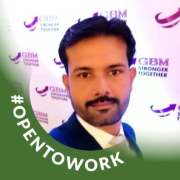


Find out what your peers are saying about Wiz, Microsoft, Amazon Web Services (AWS) and others in Cloud Workload Protection Platforms (CWPP).



SentinelOne Singularity Cloud Security protects cloud workloads, offering advanced threat detection and automated response. It integrates seamlessly with cloud environments and secures containerized applications and virtual machines against vulnerabilities.
SentinelOne Singularity Cloud Security is renowned for its efficiency in mitigating threats in real-time. The platform integrates effortlessly with existing cloud environments, ensuring robust cloud security management with minimal manual intervention. Securing containerized applications and virtual machines, it excels in threat intelligence and endpoint protection. However, improvements are needed in performance during high workload periods, and more integrations with third-party tools and better documentation would be beneficial. Users often find the installation process complex, support response times slow, and the dashboard's navigation unintuitive.
What are the key features of SentinelOne Singularity Cloud Security?In specific industries, SentinelOne Singularity Cloud Security is implemented to safeguard critical data and infrastructure. Organizations in finance, healthcare, and technology depend on its real-time threat detection and automated response to protect sensitive information. Its ability to secure containerized applications and virtual machines is particularly valuable in dynamic environments where rapid scaling is necessary.
Microsoft Defender for Cloud is a comprehensive security solution that provides advanced threat protection for cloud workloads. It offers real-time visibility into the security posture of cloud environments, enabling organizations to quickly identify and respond to potential threats. With its advanced machine learning capabilities, Microsoft Defender for Cloud can detect and block sophisticated attacks, including zero-day exploits and fileless malware.
The solution also provides automated remediation capabilities, allowing security teams to quickly and easily respond to security incidents. With Microsoft Defender for Cloud, organizations can ensure the security and compliance of their cloud workloads, while reducing the burden on their security teams.
Organizations use Sangfor Endpoint Secure for endpoint protection and security management, managing devices, servers, and networks against malicious threats. It also assists in blocking websites, managing infrastructure, applications, antivirus needs, and aids in migrating to cloud environments.
Sangfor Endpoint Secure offers end-to-end protection, incorporating file protection, AI detection, behavior analysis, access control, and ISP load balancing. It facilitates VM migration with minimal downtime and includes a dual-end user interface for creating firewall rules, uploading images, and configuring VM settings. Enhancements such as Hyper-V capabilities, policy certificates, honeypot features, and next-generation firewall integrations are available. However, Sangfor Endpoint Secure could improve on console management, reporting functionalities, public cloud migration support, navigation, VPN system issues, licensing, update management, transitioning processes, and incorporating healing capabilities.
What are its most important features?Sangfor Endpoint Secure is implemented across various industries to ensure comprehensive security management and protection. IT departments leverage its VM migration capabilities for seamless transitions to cloud environments. Healthcare organizations use it to secure sensitive patient data, while educational institutions utilize it for safeguarding academic records and personal information. Financial services employ it to protect critical transactional data and adhere to stringent compliance requirements.
We monitor all Cloud Workload Protection Platforms (CWPP) reviews to prevent fraudulent reviews and keep review quality high. We do not post reviews by company employees or direct competitors. We validate each review for authenticity via cross-reference with LinkedIn, and personal follow-up with the reviewer when necessary.